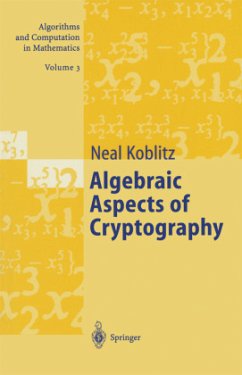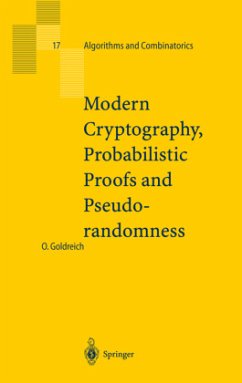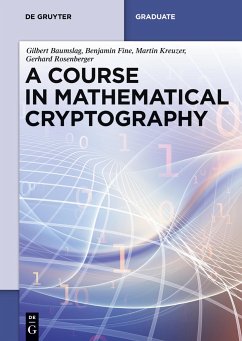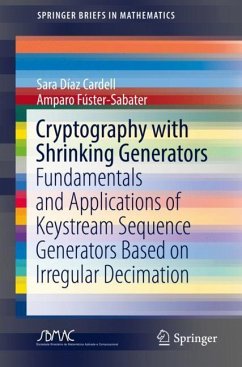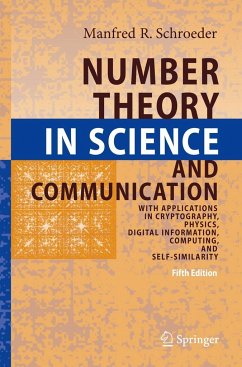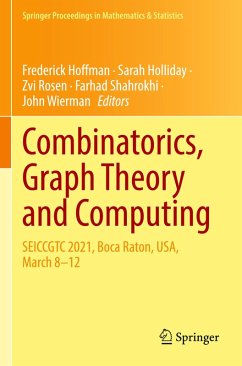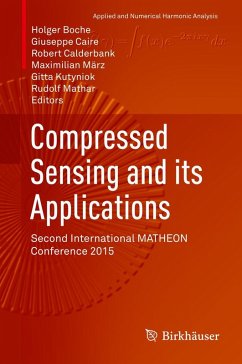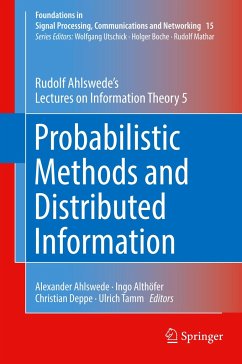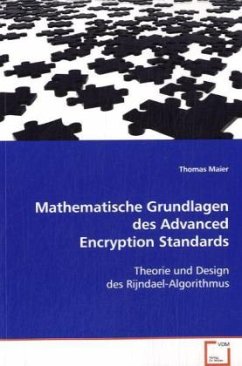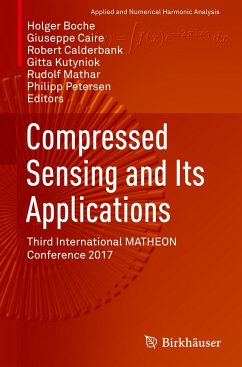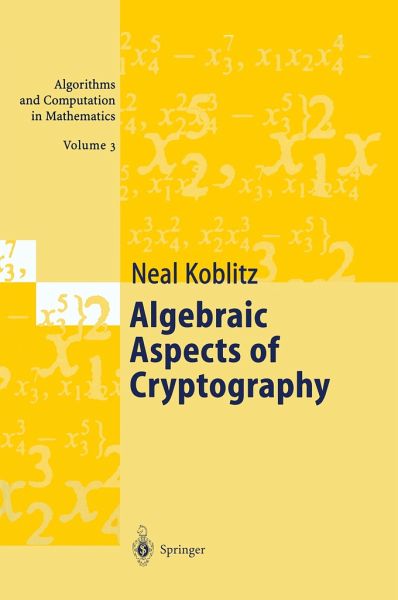
Algebraic Aspects of Cryptography
Versandkostenfrei!
Versandfertig in 6-10 Tagen
136,99 €
inkl. MwSt.
Weitere Ausgaben:

PAYBACK Punkte
68 °P sammeln!
From the reviews: "This is a textbook in cryptography with emphasis on algebraic methods. It is supported by many exercises (with answers) making it appropriate for a course in mathematics or computer science. [...] Overall, this is an excellent expository text, and will be very useful to both the student and researcher." Mathematical Reviews
This book is intended as a text for a course on cryptography with emphasis on algebraic methods. It is written so as to be accessible to graduate or advanced undergraduate students, as well as to scientists in other fields. The first three chapters form a self-contained introduction to basic concepts and techniques. Here my approach is intuitive and informal. For example, the treatment of computational complexity in Chapter 2, while lacking formalistic rigor, emphasizes the aspects of the subject that are most important in cryptography. Chapters 4-6 and the Appendix contain material that for the most part has not previously appeared in textbook form. A novel feature is the inclusion of three types of cryptography - "hidden monomial" systems, combinatorial-algebraic sys tems, and hyperelliptic systems - that are at an early stage of development. It is too soon to know which, if any, of these cryptosystems will ultimately be of practical use. But in the rapidly growing field of cryptography it is worthwhile to continually explore new one-way constructions coming from different areas of mathematics. Perhaps some of the readers will contribute to the research that still needs to be done. This book is designed not as a comprehensive reference work, but rather as a selective textbook. The many exercises (with answers at the back of the book) make it suitable for use in a math or computer science course or in a program of independent study.





